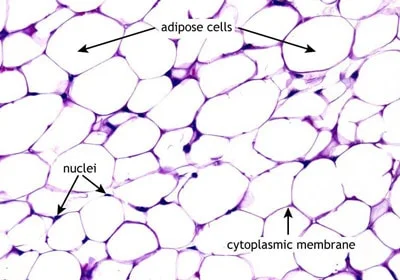Multipotent stem cells are specific variant of stem cells that has the ability to differentiate or transform into several other variants of cells belonging to a similar family. For instance, the hematopoietic stem cells. These may develop into different variants of blood cells, forming either platelets or RBCs, but they are not capable of differentiating into neural cells.
Multipotent stem cells are a type of stem cell that has the capacity to self-renew and differentiate into a limited range of cell types. Unlike pluripotent stem cells, which can differentiate into any cell type in the body (with the exception of extra-embryonic tissues), multipotent stem cells can only give rise to a few closely related cell types.
Here’s a closer look at the characteristics and examples of multipotent stem cells:
Characteristics of Multipotent stem cells: 

- Limited Differentiation: They can differentiate into a limited number of cell types, usually within a particular tissue or organ.
- Self-renewal: Like other stem cells, multipotent stem cells can also self-renew, which means they can divide and produce more stem cells of the same kind.
Examples of Multipotent stem cells:
- Hematopoietic Stem Cells (HSCs): These are found in the bone marrow and can differentiate into all types of blood cells (red blood cells, white blood cells, and platelets).
- Mesenchymal Stem Cells (MSCs): These are found in multiple tissues, including bone marrow, adipose tissue, and umbilical cord blood. MSCs can differentiate into osteoblasts (bone cells), chondrocytes (cartilage cells), myocytes (muscle cells), and adipocytes (fat cells).
- Neural Stem Cells: Found in specific regions of the brain, these stem cells can give rise to neurons, astrocytes, and oligodendrocytes.
Therapeutic Potential of Multipotent stem cells:
- Regenerative Medicine: Multipotent stem cells, especially MSCs, are being extensively researched for their therapeutic potential in various diseases and conditions, such as orthopedic injuries, heart diseases, and immune-related conditions.
- Cell Transplantation: HSC transplantation, commonly known as bone marrow transplantation, has been used for decades to treat patients with blood-related disorders, such as leukemia, lymphoma, and certain genetic disorders.
- Tissue Engineering: MSCs are being studied for their potential in tissue engineering applications, such as bone or cartilage repair for shoulder injuries, knee injuries, back pain and hip osteoarthritis.
Advantages of using multipotent cells:
- Safety: Since multipotent stem cells are more restricted in their differentiation potential compared to pluripotent stem cells, there’s a reduced risk of teratoma (tumor) formation when they’re used therapeutically.
- Autologous Transplants: It’s often possible to extract, expand, and then reintroduce multipotent stem cells from the same individual, reducing the risk of immune rejection.
Challenges of using Mutlipotent Cell Lineages:
- Limited Cell Types: Because of their limited differentiation potential, multipotent stem cells might not be suitable for all regenerative medicine applications.
- Extraction and Expansion: Acquiring sufficient numbers of these cells for therapeutic purposes can sometimes be challenging.
Multipotent stem cells offer a promising avenue for therapeutic applications in regenerative medicine, transplantation, and tissue engineering due to their self-renewal capacity and potential for differentiation into specific cell lineages.
